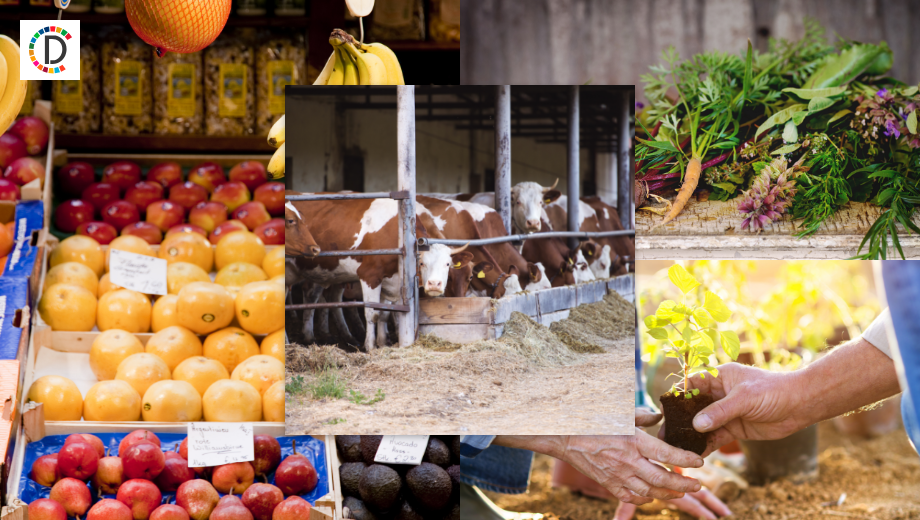India calls for eliminating north-south divide to reach consensus on issues grappling International Seed Treaty

- Country:
- India
Amid lack of consensus on issues like benefit sharing of germ plasm which will provide access to better quality seeds, India on Monday urged member countries of the International Treaty on Plant Genetic Resources for Food and Agriculture (ITPGRFA) to make headway eliminating the north-south divide.
Addressing the 9th governing body meeting of ITPGRFA here, Agriculture Minister Narendra Singh Tomar said people around the world have conserved priceless genetic resources and the treaty must support access and exchange of all crop genetic resources.
Member countries must stress on conservation and utilisation of minor millets, under-utilised potential crops as well as crop wild relatives before it is too late, he said and added, ''our fight for climate resilient agriculture and nutritional security leans heavily on your decisions and actions.'' Reiterating that ''no negotiations are possible at the cost of food security'', he said that the global forums must not forget that food is the most fundamental right. Developing countries will be driven by the necessity to ensure ''rights of farmers producing food'' are never compromised.
India is hosting a week long 9th governing body meeting of ITPGRFA and representatives of 175 countries are participating in it. The meeting held once in two years could not be organised in 2021 due to COVID-19 pandemic. The treaty has been ratified by 149 countries.
Tomar also pointed out that ITPGRFA is ''grappling to find consensus'' on issues like digital sequence information, multipurpose plant species, benefit sharing rates, etc. He requested member countries to ''revive, reset and recover'' to find best ways forward.
He said the plant genetic resources are the source of solutions to breeding challenges. But they are also vulnerable due to habitat destruction and climate change.
''Their conservation is the shared responsibility of the humanity. We must use all the modern technologies as well as traditional knowledge to conserve and use them sustainably,'' he said, India stands firm in her belief and actions on the commitments to multilateral agreement, he said, and added, ''However, unless we eliminate the divide between North and South, and convergence of the aspirations of the treaty founders, we will fail to make any headway.'' The minister also noted that genetic information mined using advanced genomic and bioinformatic tools has the potential to become subject of intellectual property rights. On the other hand, traditional knowledge maintained and enriched over generations becomes common knowledge.
''Multilateral forums like ITPGRFA have the responsibility of balancing commercial interests and heritage values to ensure continuity of plant genetic resource conservation on earth,'' he said.
Asserting that plant genetic resources must be made available for research and sustainable use, Tomar said, ''However, it is very vital that every dollar of commerce arising out of the plant genetic resources accessed from the system must be shared equitably for the purpose of conservation of plant genetic resources.'' The minister recalled in the last meeting held in Rome had demanded the treaty establish an ''operational, pragmatic, future-ready and flexible'' benefit sharing framework.
''It is unfortunate that lack of consensus and Covid pandemic did not allow usual transactions. I request you all to work towards that goal,'' he said.
While contemplating the treaty amendments and revisions, the minister urged the member countries to keep in mind the interest of farmers and communities engaged in conserving the plant genetic resources over the time.
''The world subsists on a fine balance of forces. Genetic resources governance must also balance conservation with commerce; utilisation with equity; technology with traditional knowledge; investment with innovation; and access with benefit sharing,'' he said.
He said the member countries will rise to the occasion, go beyond business as usual and make up for the time lost in the last two years to achieve a future-ready resolution.
Stressing that global agricultural research should shift from few major crops to minor millets, minor pulses and and minor fruits and leafy vegetables, Tomar said these are best weapons against irregular climate and malnutrition and there is need to build special programmes to document, research, exchange and use genetic resources of these groups of crops.
''We must use every available technology (from space to genomics) and every penny of resources (human and financial) by joining hands of public and private partners,'' he said.
Referring to an inventory developed by a technical expert group on farmers rights set up during the 7th session of ITPGRFA, Tomar proposed the governing body of ITPGRFA to consider putting into action a module of awareness, outreach and capacity building programme related to farmers' rights and offered to support the implementation of the programme once the details are worked out.
The Article 9 of ITPGFRA specially deals with farmers' rights and India is fully compliant with it and relevant provisions are enshrined in The Protection of Plant Varieties and Farmers' Rights (PPV&FR) Act, 2001.
UN body Food and Agriculture Organisation Director General Qu Dongyu in his virtual message said amid rising world population and challenges of climate change, there is a need to conserve the source of food , seeds and other plant genetic materials as future of foods depends on it.
The public and private sectors need to pick up efforts to use genetic diversity sustainably and ensure they are made available for breeders and researchers to enable innovation, he said.
''It will allow us to adapt our crops to the growing impacts of climate crisis, and be more resilient to shocks in supply chain. The treaty is central to achieving these objectives,'' he added.
ITPGRFA Secretary Kent Nnadozie, Agriculture Secretary Manoj Ahuja and India Coodinator for the UN Shombi Sharp were among other senior officials present at the event.
(This story has not been edited by Devdiscourse staff and is auto-generated from a syndicated feed.)










